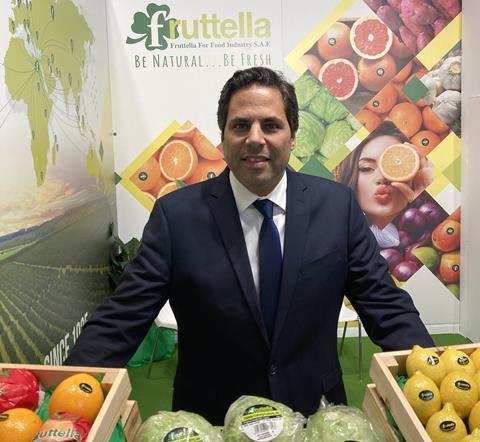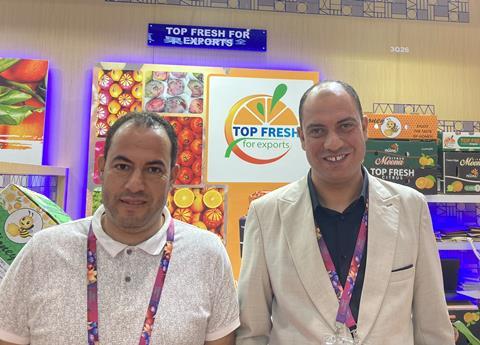Europe has struggled under the weight of the citrus volumes being diverted from the East Asian market, but issues in South Africa and Brazil mean opportunities remain for Egyptian suppliers
The ongoing disruption in the Red Sea, with Houthi attacks on shipping vessels in protest at Israel’s war in Gaza forcing them to circumnavigate the Cape of Good Hope instead of cutting through the Suez Canal, continues to severely impact Egyptian citrus exports to East Asia, encouraging many companies to divert additional volumes to the European market.
“Europe is certainly more attractive at the moment,” says Ahmed Sarhan, chairman and CEO of Frutella. “But at the same time, it was not the best market last year, because the fruit that was going to the Far East all shifted to Europe, causing the market there to go down. The market simply cannot handle all of this fruit.”

Reduced production from South Africa, however, has helped limit the oversupply on the market, as have issues in Brazil. “Brazil is facing a huge shortage in citrus this year, and all the juice factories are demanding oranges,” reveals Sarhan. “So this will shift a lot of fruit to Brazil, which will hopefully keep the European market in good condition.”
Despite the long transit time, many Egyptian citrus exporters have continued to load for East Asia over the past year. “We loaded some containers for the Far East, especially China,” says Mohamed Shams, export manager at Dakahlia, which exports oranges, mandarins, lemons, grapefruit and some limes. “The results weren’t the best, but we wanted to be there in case the situation got better. There are big opportunities for Egyptian citrus, but it is a challenge at the moment. We think that the next season might be a bit better than the last one.”
Youssef Mandour, general manager at Top Fresh, says that, when it comes to both products and markets, it is best these days to “be like an octopus”. “This is the best business strategy,” he explains, “to spread your risk. We mainly export oranges and mandarins, but we also do limes, pomegranates and some grapes. Our main market is East Asia, including China, Malaysia and Singapore, as well as Africa and the Gulf.”
However, the company is currently looking to open new channels of supply. “We want to start in Europe next year,” says sales manager Yasser Khalifa. “Germany and the UK are very important markets, and these markets will help to reduce the pressure on our business in East Asia while it is impacted by the issues in the Red Sea.”
“I don’t know when the world will call on Israel to stop this miserable situation,” says Mandour. “The Palestinians have the right to live on their land. You know, they are real experts at producing fruit. In Egypt, we learned how to cultivate and plant strawberries from the Palestinian people. We pray for peace, for all.”

Another concern, of course, is the changing climate. According to Mandour, growers in Egypt are currently doing their best to adapt. “The climate in Egypt is changing, with hotter summers and a lack of rain in the winter,” he says. “This affects yields, including in citrus. The positive thing is that there are new citrus plantations coming into production in Egypt and that is compensating for lower yields. Most important, of course, is the quality of the fruit, and Egypt remains one of the top agricultural nations, continuing to grow some of the tastiest citrus in the world.”



